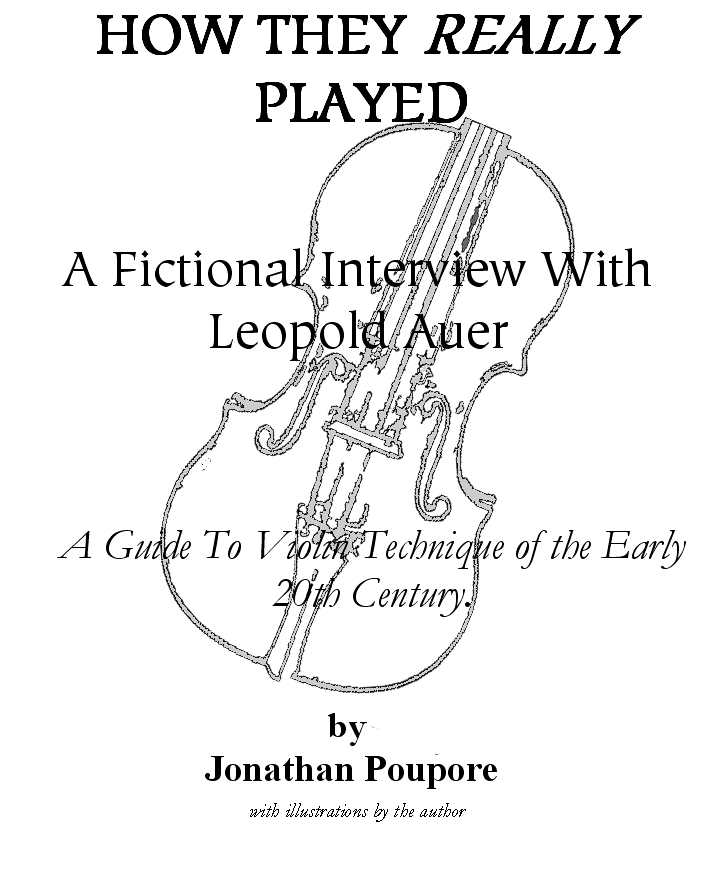Print this page
Home |
Catalogue |Site Map | A
Weblog About Music | Things to Read
How They Really PlayedA Fictional Interview With Leopold Auer
|
 |
|
THERE HAS ALWAYS
been much interest in
the
playing of the early 20th century violin masters. Though such interest
peaked at a time when a greater part of the population enjoyed
classical music through live and recorded formats such as LP’s and the
radio, there has been a renewed interest that has built steadily over
the past 25 years. I often poll my fellow violinists as to what they
admire most about violinists such as Jasha Heifitz, Fritz Kreisler,
Nathan Milstein, or Yehudi Menuhin. Though these musicians and
countless others possessed their own idiosyncratic styles, one feature
common to most of them was their ease of playing. They stood with such
stillness: faces relaxed to the point of seeming disinterest; a left
hand that allowed for an ever-present vibrato, lightning quick finger
action, and agile shifts; and full use of a bow that could either stick
like glue or fly on and off whether at the tip, frog, or somewhere in
between.
--from the author's
introduction to How
They Really Played
In this concise, well-crafted book, Jon Poupore examines, explains, and illustrates many of the techniques used by legendary violinists. Using the classic method of a fictional interview with the man who taught these techniques to the greats, as well as providing graphic illustrations, Mr. Poupore has put these techniques into the hands of every violinist. JON POUPORE
resides in Baltimore where he
is a free-lance violinist, violist, and counter-tenor. He also
enjoys baroque performance practice on authentic
instruments. He is a native Minnesotan who started viola at
17 and violin at 27. He holds a Master's Degree in viola
performance from the Catholic University of America in Washington,
D.C. He graciously invites responses from readers of HOW
THEY REALLY PLAYED and can be reached at jon.poupore@gmail.com.
Copyright © 2006 by Jon Poupore
|
Available on Request. E-mail
Here
PDF File $5.95 These
are in Letter (8 1/2in x 11in)/A4 (210mm x 297mm).
Printing Hints
If you have purchased the downloadable
version of this book, the best way to enjoy it is to print
it. It prints to letter size (or A4), and you can either print it
on one-sided or on two-sided pages. If you do the latter, you can
punch holes in it, so that it can fit in a binder, or you can take it
to a copy shop or a print shop, and they may be able to spiral-bind
it. This makes it very useful on a music stand. Another option is
to use the Clickbooks
software to make a book out of it. This is best done if you have
a large format printer (11 x 17 or A3) and can staple the spine (you
need access to a long-armed stapler for this). Clickbooks
also can make a reduced-format book, allowing you to use smaller paper.
|
